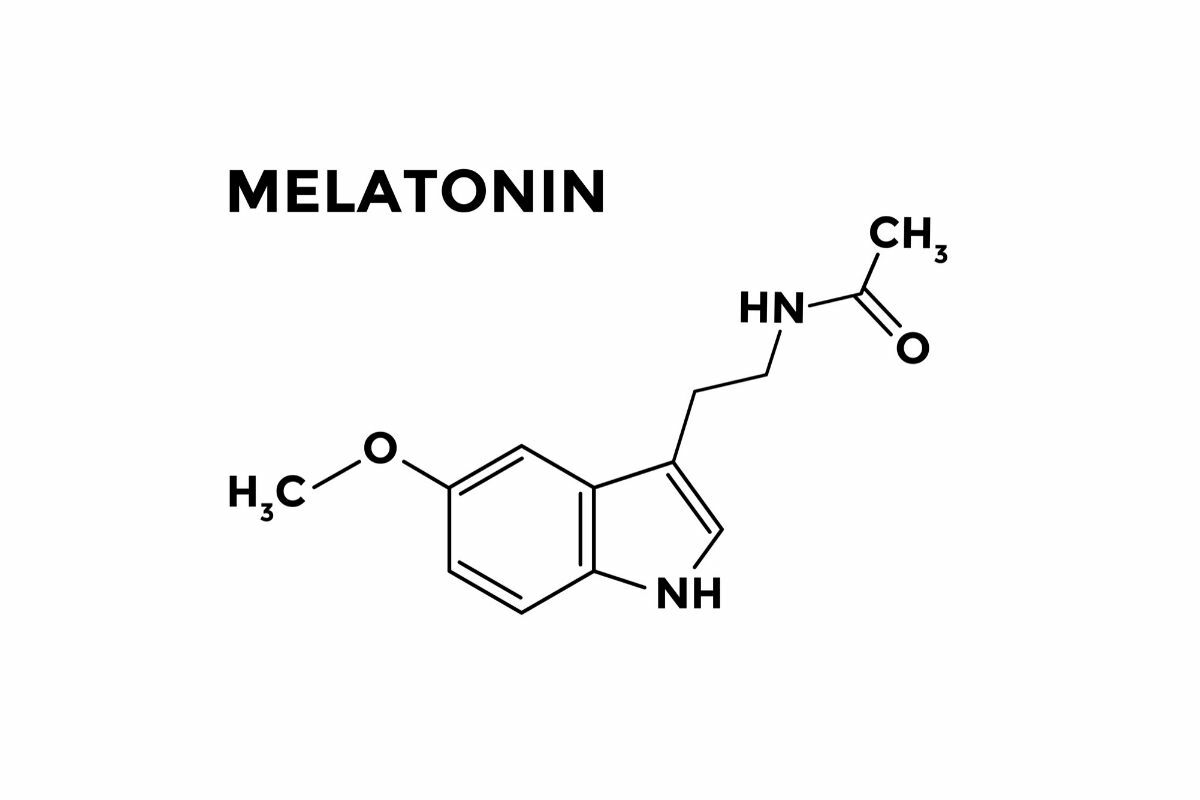Everyone likes sleeping. It allows you to regenerate after an intense workout, it relaxes us, it's essential for recharge your energy and face the next day in the best possible way.
But how much sleep should we sleep? And what does the quality of our rest depend on? Find out with us in this dedicated article!
The importance of sleep
The amount of sleep an individual needs varies, although about 7-8 hours a day is a general recommendation. The requirement is highest in the first months and years of life and tends to decrease with age. Think that on average we spend a third of our life sleeping! However, it is the quality of sleep that matters more than the quantity.
Circadian misalignment and sleep deprivation

The physiology and biological processes underlying life are regulated and marked by precise cycles, first of all the light/dark and sleep/wake cycles, defined as circadian rhythms . Unfortunately, the society in which we live confronts us with increasingly frenetic rhythms, without regularity in the routine and this leads to a situation of constant psychophysical stress, to which the body struggles to adapt suddenly. We therefore encounter a real circadian misalignment .
Of the three vertices of the triangle of well-being, nutrition and physical activity are almost always considered more than rest. We discuss specific diets and workouts, but how often do we consider sleep? Very few and there is nothing more wrong. Sleep is a primary need and its mismanagement, in addition to the immediate repercussions on daily activities and social life, also has important implications for health.
An upheaval of the biological clock , in fact, is related to endocrine-metabolic dysfunctions which can lead to pathologies such as:
- obesity,
- diabetes,
- neurodegenerative diseases,
- neoplasms.
It is therefore essential not to underestimate the real need for rest and to treat any disorders related to it to improve the quality of life and prevent further complications. In this context, everyone thinks of melatonin as a sleep solution . Let's try to get to know him better and understand why he is talked about so much.
What is Melatonin?

Melatonin is a neurohormone produced mainly by a small gland located in the brain (epiphysis or pineal gland) from the first months of life until adulthood, and then decreases during old age. The modes of secretion are determined by the suprachiasmatic nucleus, a region of the hypothalamus responsible for generating circadian rhythms . From a biochemical point of view, it is synthesized starting from the amino acid tryptophan - precursor of serotonin - which, in the absence of light, undergoes a series of chemical reactions until it becomes melatonin.
secretion mechanism
As with all hormones, even in the case of melatonin there are precise stimuli that induce its synthesis and release: the total absence of light . The secretion therefore occurs almost exclusively during the night , with a maximum peak between 1.00 and 3.00. On the other hand, in light conditions, even if of low intensity, production is immediately inhibited. Staying up late, exposed to light sources such as the screens of multimedia devices should therefore be avoided as much as possible.
Melatonin: what is it for?

Melatonin is a hormone with multiple functions:
- It modulates the production of other hormones (growth hormone, thyroid, adrenal and sexual hormones) by acting on multiple levels in their synthesis and release pathways. In this sense, he is considered a real "conductor" since he determines the biological rhythms underlying their secretion cycles.
- It is a very powerful antioxidant , especially at the level of mitochondrial membranes.
- It has a thermoregulatory action by lowering the body temperature during the night hours and consequently reducing the metabolic rate.
- Stimulates the immune system . Deficiencies of this hormone are closely related to a strong state of immunodeficiency with the consequent risk of contracting diseases. In the case of autoimmune diseases, however, its use in the form of a supplement may not be optimal.
- It has a neuroprotective effect.
- Stimulates the tropism of some tissues , especially the skin.
- It seems to have anticancer effects against some neoplasms .
- Modulates the intestinal microbiota by promoting the growth of beneficial strains.
Melatonin for sleep: effects on sleep
As we have said, melatonin represents a real biological clock for the body (chronobiotic properties), influencing various processes in which it acts as a primary regulator.
However, the best-known physiological action concerns its ability to promote sleep , due to its role in restoring correct sleep/wake cycles. In scientific jargon, this is referred to as "central clock resynchronization". It is consequently used for all those problems such as:
- insomnia,
- delayed sleep syndrome,
- jet lag,
- sleep/wake cycle reversals , such as happens for shift workers.
How to increase melatonin?

Foods rich in melatonin
In addition to exogenous intake, it is possible to act through nutrition and the use of melatonin supplements . First of all, it is naturally present in some foods of plant origin, the consumption of which is recommended as part of a balanced diet. Among these, those with the greatest content include:
- oats,
- brown rice,
- more,
- cherries,
- bananas,
- grape.
High-protein foods rich in tryptophan are also good food sources to consider. Among these the main choices are:
- meats,
- legumes,
- semi.
Finally, we must not forget the role played by carbohydrates , as their consumption favors the entry of tryptophan into the brain according to a mechanism mediated by insulin. Consuming a good dose of carbohydrates associated with a source of tryptophan as the last meal of the day can be an excellent strategy to promote good rest.
Melatonin food supplements
As far as dietary supplementation is concerned , the following are useful:
- Tryptophan and 5 hydroxy-tryptophan (5HTP).
- Plant extracts (such as Griffonia Simplicifolia ) containing the above molecules.
- Magnesium , important for the activity of the serotonin -N-acetyltransferase enzyme involved in the synthesis.
- Niacin and pyridoxine (vitamins B3 and B6 respectively), fundamental cofactors in the conversion processes that tryptophan and serotonin undergo.
Finally, lifestyle changes can also bring good results. First of all, being a cortisol antagonist , melatonin is not produced if this hormone is present at high levels as in the case of intense physical activity or other stressful events, which should be limited above all in the hours immediately preceding sleep. In addition, other factors such as smoking and alcohol abuse can have a negative effect and should be eliminated.
Dosage, efficacy and method of administration
The dosage varies according to the " difficulty falling asleep ". On average, amounts in the range of 0.5mg - 5mg are used . Cases of much higher dosages are known, in the order of 10 mg, which however require careful supervision by qualified and competent personnel. It should be remembered that melatonin in our country is subject to strict regulation according to which products with dosages greater than 1mg are not considered supplements , but fall within the pharmacological field.
Its effectiveness is not dose-dependent, therefore the saying "more is better", often used improperly, does not apply. Furthermore, in addition to other factors, it is strictly dependent on the sensitivity of the melatonin receptors, which varies between individuals.
As for the timing of recruitment , it should be taken within 1 hour before the time you usually go to bed and it is very important that this happens regularly.
Melatonin: side effects
In general, melatonin does not cause particular problems at recommended dosages, although a certain subjectivity should always be considered . At higher doses some phenomena have been reported such as tachycardia, difficulty waking up, difficulty falling asleep (causing the so-called paradoxical effect), headache and gastric disturbances.
It is also contraindicated in pregnancy due to its estrogen-reducing action (it was studied as a potential contraceptive agent). In addition, being able to pass through the placental barrier, it could be transmitted to the fetus, producing negative effects on it. Before any use it is good to evaluate the individual case each time through a medical consultation .
Conclusions
"Melatonin helps you sleep": true, but bringing everything back to such a reductive phrase represents a simplistic attitude. I therefore hope to have provided you with a broader overview of this molecule on which our psychophysical well-being largely rests.
Bibliography
- [1] R. G. Foster, "Sleep, circadian rhythms and health.," Interface Focus, vol. 10, no. 3, p. 20190098, Jun. 2020, doi: 10.1098/rsfs.2019.0098.
- [2] T. Roenneberg and M. Merrow, "The circadian clock and human health," Current Biology, vol. 26, no. 10. Cell Press, pp. R432-R443, May 23, 2016, doi: 10.1016/j.cub.2016.04.011.
- [3] E. D. Buhr and J. S. Takahashi, "Molecular Components of the Mammalian Circadian Clock," in Handbook of experimental pharmacology, no. 217, Handb Exp Pharmacol, 2013, pp. 3-27.
- [4] T. A. Legates, D. C. Fernandez, and S. Hattar, "Light as a central modulator of circadian rhythms, sleep and affect," Nature Reviews Neuroscience, vol. 15, no. 7. Nature Publishing Group, pp. 443-454, 2014, doi: 10.1038/nrn3743.
- [5] I. D. Blum, B. Bell, and M. N. Wu, "Time for Bed: Genetic Mechanisms Mediating the Circadian Regulation of Sleep," Trends in Genetics, vol. 34, no. 5. Elsevier Ltd, pp. 379-388, May 01, 2018, doi: 10.1016/j.tig.2018.01.001.
- [6] C. M. Depner, E. R. Stothard, and K. P. Wright, "Metabolic consequences of sleep and circadian disorders," Curr. Diab. Rep., vol. 14, no. 7, 2014, doi: 10.1007/s11892-014-0507-z.
- [7] J. Qian and F. A. J. L. Scheer, "Circadian System and Glucose Metabolism: Implications for Physiology and Disease," Trends in Endocrinology and Metabolism, vol. 27, no. 5. Elsevier Inc., pp. 282-293, May 01, 2016, doi: 10.1016/j.tem.2016.03.005.
- [8] A. V. Nedeltcheva and F. A. J. L. Scheer, "Metabolic effects of sleep disruption, links to obesity and diabetes," Current Opinion in Endocrinology, Diabetes and Obesity, vol. 21, no. 4. Lippincott Williams and Wilkins, pp. 293-298, 2014, doi: 10.1097/MED.0000000000000082.
- [9] I. C. Mason, J. Qian, G. K. Adler, and F. A. J. L. Scheer, "Impact of circadian disruption on glucose metabolism: implications for type 2 diabetes," Diabetologia, vol. 63, no. 3. Springer, pp. 462-472, Mar. 01, 2020, doi: 10.1007/s00125-019-05059-6.
- [10] A. W. McHill and K. P. Wright, "Role of sleep and circadian disruption on energy expenditure and in metabolic predisposition to human obesity and metabolic disease," Obesity Reviews, vol. 18. Blackwell Publishing Ltd, pp. 15-24, Feb. 01, 2017, doi: 10.1111/obr.12503.
- [11] S. L. Chellappa, N. Vujovic, J. S. Williams, and F. A. J. L. Scheer, "Impact of Circadian Disruption on Cardiovascular Function and Disease," Trends in Endocrinology and Metabolism, vol. 30, no. 10. Elsevier Inc., pp. 767-779, Oct. 01, 2019, doi: 10.1016/j.tem.2019.07.008.
- [12] J. Mattis and A. Sehgal, "Circadian Rhythms, Sleep, and Disorders of Aging," Trends in Endocrinology and Metabolism, vol. 27, no. 4. Elsevier Inc., pp. 192-203, Apr. 01, 2016, doi: 10.1016/j.tem.2016.02.003.
- [13] A. Loehfelm, A. Boucsein, D. Pretz, and A. Tups, "Timing Matters: Circadian Effects on Energy Homeostasis and Alzheimer's Disease," Trends in Endocrinology and Metabolism, vol. 30, no. 2. Elsevier Inc., pp. 132-143, Feb. 01, 2019, doi: 10.1016/j.tem.2018.12.001.
- [14] J. Arendt, "Melatonin: Characteristics, concerns, and prospects," Journal of Biological Rhythms, vol. 20, no. 4. pp. 291-303, Aug. 2005, doi: 10.1177/0748730405277492.
- [15] B. Claustrat and J. Leston, "Melatonin: Physiological effects in humans," Neurochirurgie, vol. 61, no. 2-3. Elsevier Masson SAS, pp. 77-84, Apr. 01, 2015, doi: 10.1016/j.neuchi.2015.03.002.
- [16] B. Claustrat, J. Brun, and G. Chazot, "The basic physiology and pathophysiology of melatonin," Sleep Med. Rev., vol. 9, no. 1, pp. 11-24, 2005, doi: 10.1016/j.smrv.2004.08.001.
- [17] J. H. Stehle, C. von Gall, and H. W. Korf, "Melatonin: A clock-output, a clock-input," Journal of Neuroendocrinology, vol. 15, no. 4. pp. 383-389, Apr. 01, 2003, doi: 10.1046/j.1365-2826.2003.01001.x.
- [18] R. J. Reiter, "The melatonin rhythm: both a clock and a calendar," Experientia, vol. 49, no. 8. Birkhäuser-Verlag, pp. 654-664, Aug. 1993, doi: 10.1007/BF01923947.
- [19] J. Arendt, "Melatonin and human rhythms.," Chronobiol. Int., vol. 23, no. 1-2, pp. 21-37, 2006, doi: 10.1080/07420520500464361.
- [20] J. Arendt and D. J. Skene, "Melatonin as a chronobiotic," Sleep Med. Rev., vol. 9, no. 1, pp. 25-39, 2005, doi: 10.1016/j.smrv.2004.05.002.
- [21] D. J. Skene and J. Arendt, "Circadian rhythm sleep disorders in the blind and their treatment with melatonin.," Sleep Med., vol. 8, no. 6, pp. 651-5, Sep. 2007, doi: 10.1016/j.sleep.2006.11.013.
- [22] E. Ferracioli-Oda, A. Qawasmi, and M. H. Bloch, "Meta-Analysis: Melatonin for the Treatment of Primary Sleep Disorders," PLoS One, vol. 8, no. 5, May 2013, doi: 10.1371/journal.pone.0063773.
